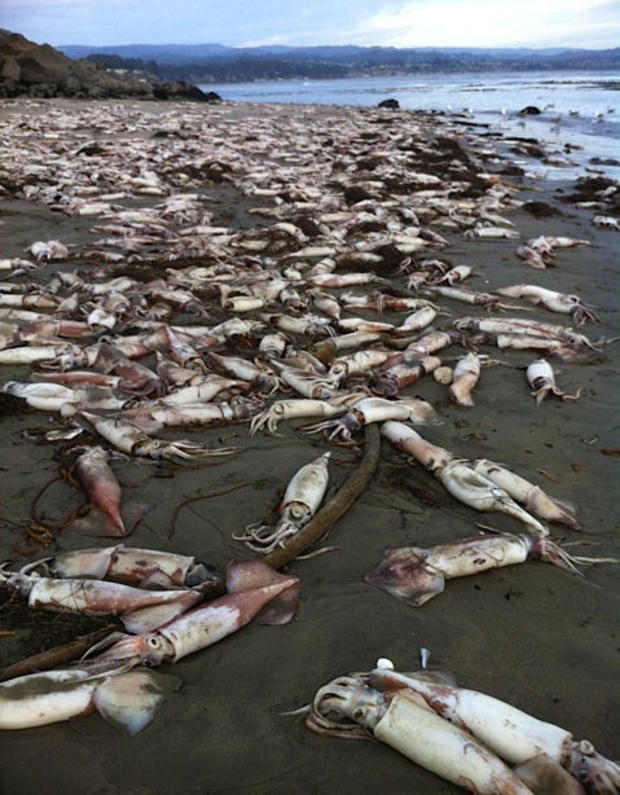Hundreds Of Squid Wash Ashore Along Santa Cruz County Beaches
APTOS (CBS 5) -- Scientists are investigating why at least several hundred dead squid suddenly washed ashore along the Santa Cruz County coast Sunday afternoon.
Witnesses said the Humboldt squid stranded themselves during high tide Sunday. Carcasses were found along a 12 mile stretch from Aptos to Watsonville.
"You just see them essentially killing themselves, and it's just really weird to see it," said graduate student Hannah Rosen of Stanford University's Hopkins Marine Station.
Rosen said some people tried to put the squid back in the water, but the deepwater creatures swam back to shore.
"They don't see the shore very often," Rosen said "So it might just be that they don't understand what's going on around them, and they're just trying to get away and don't realize that if they swim towards the shore, they're going to run out of water eventually."
Scientists identified the squid as juveniles, both male and female, about a foot and a half long, weighing three pounds. The animals had full stomachs, having feasted on smaller market squid. A few had also cannibalized each other, which is normal.
More Science & Technology Headlines
>>Unexplained Light Formation Spotted Above SF
>>SF Considers Smoking Labels For All Apartments
>>Feds To Fund Free Cell Service For Homeless
>>New Popemobile Delivered To Benedict XVI
Researchers have not determined why the squid washed ashore. There is some speculation the animals may have eaten toxic algae.
"It's possible that the squid are ingesting either these neurotoxins or they're getting it through their food," Rosen said. "And that could be causing them to be disoriented and swim onto the beach."
Humboldt squid have not been seen in the Monterey Bay area for a few years. Scientists believe El Nino weather patterns may have drawn them to the cooler waters of Northern and Central California. The stranding is the third in the past six weeks.
"It's really an exploratory time for us, so we're learning more about what causes these strandings, and whether or not we should be worried about them or if it's just a natural part of the squid cycle," Rosen said.
(Copyright 2012 by CBS San Francisco. All Rights Reserved. This material may not be published, broadcast, rewritten, or redistributed.)




